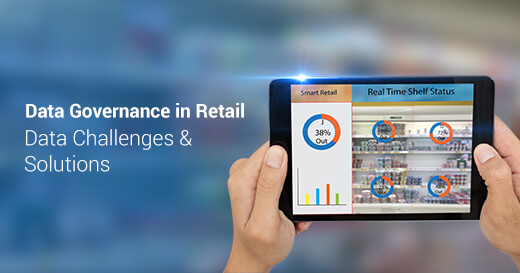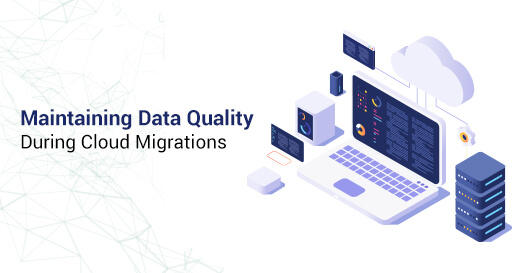Introduction to Data Privacy & Compliance
Written by Devyaani
Technical Content WriterData privacy, also known as information privacy, is a branch of data management that ensures that the data shared by the customers gets used for its intended purpose or approach. It also focuses on compliance with data privacy regulations.
With new regulations in place, there is a need to change or update the effective workflows of organizations. With data privacy, citizens and organizations control how the information is collected, stored, and used.
Why is Data Privacy Important?
Data privacy, also known as information privacy, majorly concerns sensitive data. If it gets exposed or lands in the wrong hands, it creates room for data misuse or breaches. One of the many reasons why organizations comply with data privacy is to avoid such breaches. Another reason is to comply with privacy regulations to avoid fines, as non-compliance can cost twice the compliance cost.
Apart from it, there are many other reasons why an organization should comply with data privacy and its regulations. Data has become one of the most important essential parts of organizations as data and numbers add value proposition and growth.
Data Privacy & Personal Identifiable Information
Personal identifiable information (PII) laws regulate data privacy. Common types of PII include:
Name
Postal Code
Personal ID
Alias
Phone Number
Account Number
Email Address
Social Security Number
IP Address
Driver License
Passport Number
Online Identifier
Biometric Identifiers
Financial Account Number
Date of Birth
All in all, the above common PII are considered as potential sensitive data. There are more PII, but these are the most commonly used.
Why Comply with Data Privacy Laws?
Data privacy compliance and framework provide multiple benefits to organizations. It not only helps the organizations prevent identity thefts but also adds to better compliance and functions. Besides, it also adds to revenue, resulting in overall growth.
Data privacy regulations such as General Data Protection Regulation (GDPR) and California Consumer Privacy Act (CCPA) address key data governance and data privacy issues that safeguard user data and meet the organization's obligations to comply with the regulations. There are other regulations that also legally protect consumers based on various criteria.
Compliance with regulations adds to the overall structure of the business, safeguards consumers, and creates a better brand value. Compliance is also important to stay updated with consumer trends and other requirements.
What Data Privacy Laws Apply to Your Organization?
Data privacy can be a challenge as privacy regulations vary from place to place, country to country, and in some cases, it varies from state to state.
Data privacy laws and regulations get marked in different forms that spell out what data protection is required, what framework should be accepted, and what penalties to avoid according to compliance.
It is important to consult a data privacy expert to understand an organization's data privacy needs. However, there are a few data privacy regulations businesses need to comply with to avoid non-compliance costs. The regulation varies based on industries, places, and other factors. The regulations include:
Overall, data privacy provides compliance and a framework to the organization that helps with various branches of data privacy such as sensitive data, private information, and more. Data privacy ensures fewer risks and security breaches, and it also helps with increasing the brand value of an organization. Complying with the regulations are an integral part of data privacy as it adds to the overall structure of the business, safeguards consumers, and creates a better brand value. Compliance is also important to stay updated with consumer trends and other requirements.
Data Privacy vs. Data Security
People often confuse data privacy with data security, but both have mutual obligations in the data governance landscape and data protection laws.
- Access control: Restricting unauthorized access to and use of data is the most crucial pointer of data privacy. And privacy is only led by robust security preventing data breaches.
- Data integrity: Data integrity, or simply verifying that the data is accurate, is a priority concern for customer data privacy and security activities.
- Accountability: Companies stating accountability clauses should also document the privacy and security measures.
Although similar in the above aspects, data privacy and data security have different focus areas.
Data privacy emphasizes safeguarding the confidential information of businesses and their customers. The guidelines instruct what types of personally identifiable information (PII) can be gathered, who the concerned parties are, and what actions to what extent can be taken. Organizations must ensure that only authorized personnel, relevant people within the business or stakeholder, and specific segments of the public are allowed access to information.
On the other hand, data security is mainly concerned with ensuring the required data's protection, integrity, and availability. Therefore, security firms and IT project management professionals execute cybersecurity measures to defend their business’s infrastructures from malicious attacks and data breaches.
A robust data governance framework facilitates data sharing and contains data privacy. For example, you can provide self-service access to authorized personnel required to see sensitive data and hide PII from others in the system. Understand that security can work without privacy, but privacy needs security. This indicates that full-scale privacy policies, including data processing, data collection, data retention, data portability, and data deletion, are useless if a user can penetrate a system and access sensitive information.
How can Collibra Help with Data Privacy & Governance?
From implementation, customizations to management, we offer one-stop solutions for data governance. Royal Cyber’s Collibra professionals are the subject matter experts who can help you drive success and accelerate growth that will unleash limitless potential.
- Strategic Data Management Approach with Collibra’s Data Stewardship
- Expert Enablement of Features (Business Glossary, Catalog, Help Desk, Policy Manager, and more)
- Successful Development, Management, and Customizations of Workflows
- Streamlined Implementation of License Management
- No Errors, 24/7 Back-up, and Restoration
- Collibra Web Interface and Web Application Components Check, using JAVA API, REST API, Snapshots, Query API, BPMN 2.0 Workflow Engine, Data Quality Connector
Royal Cyber experts can also help you assist with a comprehensive view to ensuring data quality and consistency that guarantees better decision-making strategies. We provide continued existence through risk management and optimization with our established rules of data use and compliance requirements that increase data value. What more? Our operation models help you to control the workflow better with less effort that provides flexibility and scalability. For further details on the services, contact us.



